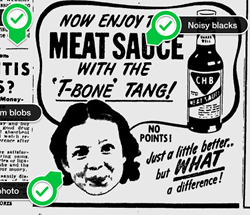 We all have great clients. They understand their market, communicate their goals, work with you, offer constructive criticism, pay on time, and rave about your business. They make the hard work worthwhile.
We all have great clients. They understand their market, communicate their goals, work with you, offer constructive criticism, pay on time, and rave about your business. They make the hard work worthwhile.
Then there are the jobs you regret starting. The ones with the problem client who’s never happy no matter how hard you work, how reasonable your rates, or how successful their project becomes. Their payments are late and they’re a burden on your business.
It’s easy to recognise a problem client once you’re working for them, but can you spot one before you start? Here are 12 signs that should set alarms ringing before any contracts are signed…
1. Their first question: “what do you charge?”
Clients are cost-conscious, but how can you provide a quote without knowing what it involves? Most clients understand this, but the problem client wants a number and they won’t be happy if your final estimate exceeds it.
2. Incessant meetings
The problem client will demand constant attention prior to “starting”. Although you should help clients understand your services, some will use you as a general IT help-desk. You’ll be fixing their laptop before you know it.
3. Horror stories
Problem clients have a selection of stories about inadequacies, issues and struggles they’ve experienced with other suppliers. Make sure your business isn’t their next target.
4. Too many business interests
Entrepreneurs juggle business ideas. That’s healthy, but the problem client will have too many. They could lose interest and move on to their next big thing leaving you with their half-finished project and no payment.
5. Vague specifications
Clients should be experts in their field and have some idea about their requirements and budgets. Problem clients won’t.
Worse are those with “revolutionary” ideas. They cannot reveal their secret details but still need a quote. Be prepared for lengthy legal negotiations and NDAs to discover they want a Twitter clone.
6. Moving targets
Projects evolve naturally but some clients won’t just move goalposts — they change the game. If it occurs frequently you know it won’t stop.
7. Poor recall
Their version of agreements is always different to yours? Strangely, it’s always in their favor?
8. They’ve got a mate…
A friend of a friend has a mate down the pub. He can complete this project in an afternoon for $150. Wish them luck as you leave!
9. Continual haggling
Be on guard when you hear “but we’re only a small company” or “we cannot pay your rates”. Their company won’t be smaller than yours. Never haggle: it devalues your service and they will just ask for further reductions. It’s easy to slash costs — simply cut project features.
10. Unreasonable conditions
The client is happy to pay once they’re #1 in Google for “software”. Or perhaps they’ll pay a percentage of profits? No one offers profit sharing if they believe their business will be a success.
11. It’ll be great for your business
The classic: “Think about the publicity! It’ll be great on your portfolio! I’ll tell everyone about you! If anything, you should pay me for the privilege of working on it!”
Your best response: “Great! Give me your <products>. I’ll use them every day and tell everyone. Think about the publicity. You should pay me to have them!”
12. They know your job better than you
Web development’s easy! You just type and add pictures. Anyone can do that.
If that’s the case, the client can complete the project themselves. You could even offer a free appraisal of their handiwork — it won’t take long.
Problem clients are a fact of life for all businesses. You can avoid them, but it’s not always possible to pick and choose who you work with. Ensure you have watertight contracts, clear costs, and late payment procedures — you won’t go far wrong.
Craig is a freelance UK web consultant who built his first page for IE2.0 in 1995. Since that time he's been advocating standards, accessibility, and best-practice HTML5 techniques. He's created enterprise specifications, websites and online applications for companies and organisations including the UK Parliament, the European Parliament, the Department of Energy & Climate Change, Microsoft, and more. He's written more than 1,000 articles for SitePoint and you can find him @craigbuckler.




